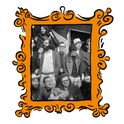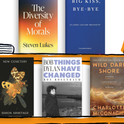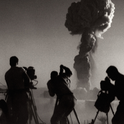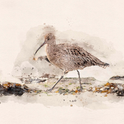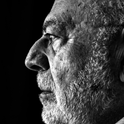Michael Gove has provoked a great deal of protest by proposing to reform the history curriculum. He wants it to reflect a coherent, continuous, chronological “story of these islands.” The hostility of most teachers to his reforms is now well known, and commentators in the media have been quick to accuse him of academic snobbery, traditionalism, chauvinistic mythologising, and so on. From the point of view of philosophy of history, however, Gove’s emphasis on chronology is a step in the right direction. There is one possible but major adjustment he now needs to make. History should be taught backwards.
Philosophers of history have long been fond of the metaphor of history as “archaeology.” You find it in the work of thinkers as diverse as the father of modern British philosophy of history, RG Collingwood, the French social theorist Michel Foucault, and the Cambridge historian Quentin Skinner.
And you can see what they’re getting at. The work of actual historians is more akin to “digging up the past” than it is to learning stories. Historians bring to the light of day remnants from below the social surface. The more historically remote an episode is, the more “layers” of the intervenient centuries the historian has to dig through to get there; and the deeper you dig, the further back you go. And you can only dig through those layers in a particular order. No archaeologist has ever encountered Victorian medical implements beneath a Roman mosaic, or fragments of the Berlin Wall under a Viking shield.
Gove does not have working historians in mind, let alone archaeologists. He is thinking, I suppose, of something more like a golden age of classical education. But even though we are not trying to turn children into professional historians, it might still be better for pedagogic reasons to arrange the chronological history curriculum by the order in which those “layers” are encountered, rather than by the order in which they were deposited.
Ancient Britain is the very deepest layer of our society—the most remote, the most alien. It is, then, a bad place to introduce children to their own society’s past. It is too obviously not “their own” (at least, not yet). The most accessible history for the very young is actually to be found by reversing the chronology.
We should begin by showing children how to scratch the surface to find the recent pasts of their parents’ and grandparents’ generations—pasts which they can talk about together. Gove is responsible for schools, not for homely chats over dinner, but at these early stages formal education needs to draw on the willing involvement of parents, most of whom don’t know very much about Roman Britain.
By contrast, recent history is not challenging enough for the relatively advanced historical imaginations of older pupils. The events of the 20th and 19th centuries are pencilled in for Key Stage 3, but those centuries actually share much of the conceptual environment that we still have, and which children at that stage hardly need to learn about formally: western democracy, property concepts, industrialised production.
But because something like feudalism is buried much deeper, understanding it requires the kind of advanced historical imagination that has been taught how to strip all of that away. The Middle Ages, the Anglo-Saxon kingdoms and Roman Britain are foreign not only because of their spoken languages. The remote past is less complex technologically, but not socially or conceptually. These are advanced pasts for advanced minds, so they should appear at the culmination of the continuous “dig,” and not at the outset in Key Stages 1 and 2.
We should support Gove’s “story of Britain” curriculum, but we should also push for a version that leads our children into worlds that deepen their knowledge of our society and its past, rather than showing them, century by century, more and more of what they already know.
Teach history backwards
Michael Gove's reforms require a major adjustment
June 06, 2013

Why do we teach young children ancient history?

